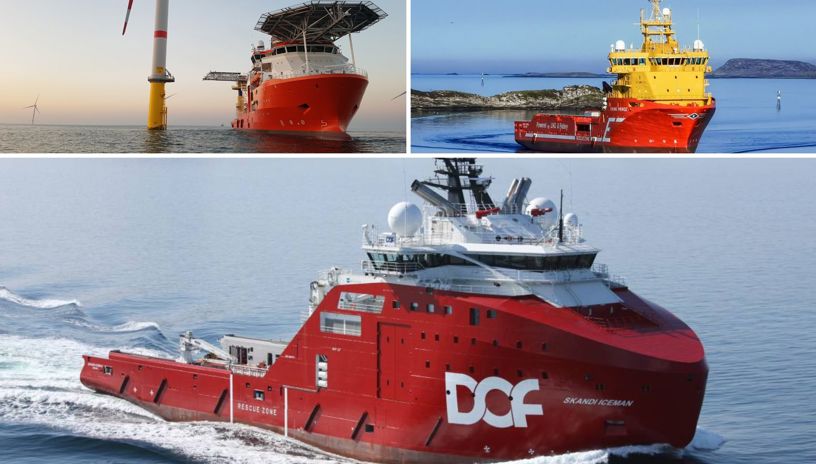Will evaluate the future fuel for the Norwegian maritime offshore industry
Together with the offshore shipping companies DOF, Solstad, and Eidesvik, the Norwegian Shipowners' Association has commissioned an analysis of alternative fuels from SINTEF Ocean.

The study will analyse and provide recommendations for three specific cases: Platform Supply Vessels (PSV), Anchor Handling Tug Supply vessels (AHTS), and Construction Support Vessels (CSV).
The Norwegian Shipowners' Association is the client, while the three shipping companies will contribute with technical and operational data.
- The maritime offshore industry plays an important role in value creation and employment in large parts of the country. In order for the industry to achieve its climate goals, the ships being built today must meet future emission requirements. However, this requires that the shipping companies have a solid knowledge base for their investment decisions. We believe this analysis will help shed light on issues and provide a foundation for making informed investment decisions, says Harald Solberg, CEO of the Norwegian Shipowners' Association.
The study will, among other things, assess a range of technical and practical factors that affect and limit the choice of alternative fuels, including energy consumption, production capacity, technological maturity, and costs of newbuilds and modifications.
Significant influence
- Our industry has significant influence in the maritime sector, and it is a responsibility we take seriously, says Lars Christian Larsen, project manager at DOF.
The study will be an important piece in realizing the Shipowners' Association's climate goals and strategy from May 2020. The strategy involves a goal of cutting emissions by 50 percent per unit by 2030 compared to 2008. By 2050, the Shipowners' Association's members aim to have a carbon-neutral fleet.
When the KonKraft alliance presented its status report on emission reductions in the oil and gas industry in June, it was revealed that offshore shipping companies are already well underway in reducing their operational emissions.
Larsen emphasizes that several ships being built today are "alternative fuel ready," meaning their designs are prepared for future conversion to different technologies, such as by allocating space for new fuel tanks and engines. However, this presupposes investment in fuel production and infrastructure.
- In this regard, the industry has a particular responsibility and an opportunity to influence which alternative fuels will be available by sending a clear signal to both producers and authorities. With this project, we aim to make it easier for all companies in the segment to invest in zero and low-emission technology. At the same time, our goal is to send a signal that we are pointing to a limited number of energy carriers for our segment, thereby making it clearer for the bunkering infrastructure sector," he says.
The study is expected to be completed in October 2023.